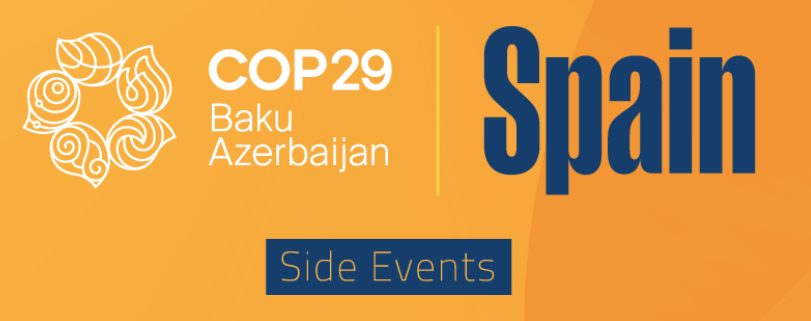You are here
COP29 - Islands and Climate Change: laboratories for climate action, with a special attention to tourism
Conferencias, seminarios, jornadas y congresos.
Online. Timezone: Europe/Madrid. 12:30 - 13:30
20 November 2024
Imagen contenido

Para seguir en directo a través de Youtube, X (Twitter) y LinkedIn - disponible en inglés.
Islands are ideal ‘laboratories’ for understanding but also developing innovative and accelerated approaches for decarbonisation and resilience.
Objectives:
- Islands are ideal ‘laboratories’ for understanding but also developing innovative and accelerated approaches for decarbonisation and resilience due to the complex interplay of environmental, social, and economic sustainability. Moreover, their isolated nature often amplifies the importance of key factors contributing to both their unique challenges but also opportunities.
- This event will link to the series of events on island innovation “Island Voices @COP29” virtual space contributing to share key insights and experiences related to island communities. In the same spirit we will hear from local business leaders, politicians and academics connecting both Small Island Developing States (SIDS) and Sub-National Island Jurisdictions (SNIJs).
- In the specific case of COP29 the Presidential Initiative on Enhanced Climate Action in Tourism has the objective to focus on tourism climate action globally as a sectoral policy supporting national climate goals. As identified by the COP29 presidency “the tourism sector is taking enhanced responsibility for its social and environmental impacts, looking at sustainability as an interlinked element to competitiveness and resilience, from a business-as-usual scenario which could lead to tourism-related GHG emissions to increase at least by 25% by 2030 while accelerating adaptation efforts would be fundamental. At present 53% of UNFCCC Parties’ Nationally Determined Contributions recognise tourism as a vulnerable sector to the impacts of climate change.
- In particular we want to provide an islands perspective on the main objectives related to decarbonisation in SIDS and SNDs with a special attention paid to tourism as a key sector to highlight wider island-related specific issues, as part of COP29’s Tourism Day namely:
- – What does the Baku Declaration on Enhanced Climate Action in Tourism mean from an islands’ perspective looking at decarbonisation?
- – How to best ensure sectoral engagement to strengthen the Glasgow Declaration on Climate Action in Tourism, e.g. the Canary islands are already leading the way with a Climate Action plan and its tool available at sostenibilidad.canariasdestino.com.
- – How can a Science-based approach be adopted to link to the UN Statistical Framework for Measuring the Sustainability of Tourism (MST) and be applied to islands as a tool to measure national tourism emissions, to includes environmental data like greenhouse gas (GHG) emissions and energy use as part of its essential pillars. Find out more about the UN Statistical Framework MST.
- – How can islands best engage in the global coordination and partnership mechanism for enhanced climate action in tourism to be launched at COP29?
- Key takeaways for enhancing ambition.
Moderator:
James Ellsmor. Island Innovation Association.
Speakers:
- Julieta Schallenberg. Deputy Councillor. Regional Government of Canary Islands. Spain.
- Thiery Le Breton. Director. Dynamia. Mauritius Islands and Indian Ocean Islands Foundation.
- Joyelle Clarke. Senator. St. Kitts and Nevis Government.
- Pau Vilchez. Chair of the Climate Change Committee of the Balearic Islands. University of the Balearic Islands. Spain.
- Jose Acosta. iCatalst. Marivi Island Baja California Gulf.


